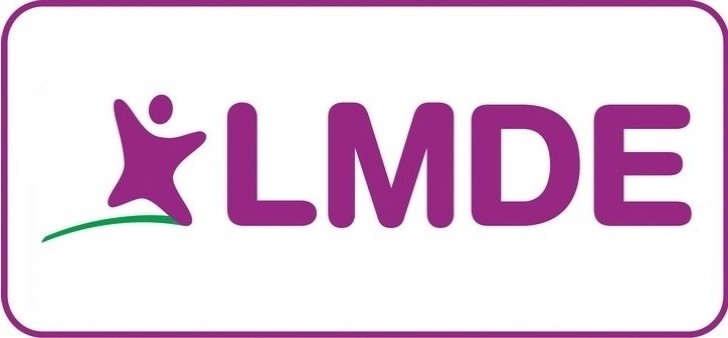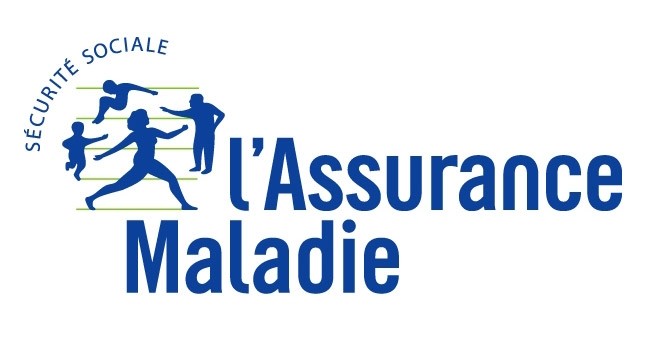The different types of insurance in France
When you come to France, it’s normal for you to feel something, maybe a little, slightly disorientated… well, no, let’s be honest: between another language, another culture… it’s easy to feel completely lost among so much paperwork! >. <
One of the recurring issues is… the famous sécurité sociale… the first time that one hears about this, the first questions that come to mind are: what is that? Can you eat it? What is it for? O. o
And when we find out that in most cases this represents an extra payment the next questions are: Do I really need it? Do I really need to pay these two hundred odd euros? Wouldn’t it be better if I saved them? :D
So, in this article, I am going to talk to you about these procedures. So that you know the differences between the sécurité sociale, la mutuelle, l’assurance de responsabilité civile y l’assurance habitation. These are three procedures that you will hear being talked about from the start of your stay.

The different types of insurance in France
We can separate and identify four types of insurance in France:
-
La sécurité sociale
-
Le mutuelle de santé
-
L’assurance de responsabilité civile
-
L’assurance habitation
Each one of these insurances is different and has a specific function. Below, I will discuss in detail what each one consists of.
La sécurité sociale: LMDE and SMERRA
In France, every student under eighteen years old, is obligated to be affiliated with the sécurité sociale. It’s social health insurance. Although when you come from Erasmus or an exchange you are generally exempt from the registration fee, there are times in which there will indeed be an expense that you have to pay: the health insurance fee.
If you are European, the International Relations office of the French university that you have gone to study at will ask you for a copy of your European Health Insurance Card. With this, you won’t need to may any extra fee to the receiving French university.
However, if you originate from a country that is not a member of the European Union, then you will have to pay for this insurance. I believe it costs around two hundred and fifty euros, something like that. Every year the amount changes. You will have to check it directly with the university in question; )
In some cases, even though you’re not European you can be exempt from this payment. In the case of, for example, the grants from the French government. Fortunately, in the two occasions that I have come to France, I was given a grant and therefore never had to pay for this insurance. So, inform yourself well about the advantages of the grant that you have, in case it applies.
I remember that this year, in an informative meeting for foreign students in the university here in Lyon, they were talking about the sécurité sociale, and the payment that you had to make. One boy commented that he had been given a grant from the French government and that they had told him that he would be exempt from this payment.
But, as the person from the International Relations office wasn’t aware of this particularity, they told him that they hadn’t heard of this advantage and that he would probably have to pay the fee. The boy was Mexican and, coincidentally, was studying the same degree that I studied and had the same grant as when I went on an exchange.
I confirmed to him that what they had told him was true, that he only had to go to the enrolment centre with the original proof of his grant. Showing this document, they wouldn’t ask him to pay anything.

A second particular case was that of the Quebecois. As this Canadian province has a special agreement with France, its citizens also do not need to pay the fee for the sécurité sociale.
In France there are different organisations that manage student social security. In Lyon, for example, they have the LMDE and the SMERRA. They are two different organisations but, really, the both do the same thing x)
I, however, recommend SMERRA. LMDE is an organisation at national level and I have heard people say that reimbursements take more time. Meanwhile, as SMERRA works on only a regional level, it is usually much faster.
The latter organisation was the one that I chose last year and I don’t have any complaints about it. Furthermore, I remember that it has various offices in the city of Lyon. Meanwhile LMDE has, I believe, only one. So, all in all it can be more practical to use SMERRA; )
And before we continue: I remember that, in Caen, Basse-Normandie, where I went the first time that I came to France, was affiliated with the LMDE… and the people in charge of the office were the very unfriendly and not at all welcoming type! You could see that they hated their job, as much as the students that went to ask about a procedure, a doubt or whatever else it might be…
Only on one occasion were they in a good mood and it was because, that day, after being seen to we had to fill in a questionnaire with our opinion on the service. On that occasion, they were friendly (or at least, not as bad as usual). And I naively filled in the survey without really complaining about it… but in the end it turned out that the next time I was there, their attitude was the same as always! >. <
So I wouldn’t recommend the LMDE, as least not the one in Caen (I hope that the woman there doesn’t stay at the agency! )
La mutuelle
This is another term that you will hear about constantly. The sécurité sociale only covers a part of the medical costs. Two thirds, to be exact (although there are also certain treatments that aren’t covered at all, because they aren’t considered to be a first priority).
In order to be reimbursed in a better way (that is to say that you pay less), you can take out a mutuelle. It is a complementary insurance to the social security.
For this, you can use the same agencies that I mentioned before: SMERRA and LMDE. A useful piece of advice that I can give you is that, if you decide to buy a mutuelle, do so in the same agency that you chose for you sécurité sociale. All the processes and payments will be faster and more practical.
I remember that the first time I came to France, I chose LMDE for the sécurité sociale. But for the mutuelle, I bought it from SMENO (the equivalent of SMERRA, but in the Basse-Normandie region). I preferred to buy it in SMENO and not in LMDE because I thought that it had more reimbursement advantages, that I was better covered with the first option and not the other…
In the end, it was a such a fuss! When I had a consultation or analysis, I had to send a copy to LMDE and another to SMENO, because each one reimbursed me differently… you can already imagine the circles that I had to go in and the time that I lost going from one place to another, waiting for somebody to see to me and everything else…
The second time in France, I remembered this lesson and chose to use SMERRA for both the social security and the mutuelle.
Of course, if you have a grant from the French government, it’s possible that you grant includes the reimbursement of the mutuelle That is to say, you buy this complimentary insurance and the office of Campus France will return what it cost you. The reimbursement is up to the limit of 260 euros, approximately. With this amount, you can buy a complete mutuelle.
If you have that possibility, do not hesitate to pay for it because then you pay practically nothing for the consultancies, analysis etcetera. For example, last year, thanks to the mutuelle I only payed one euro and something for a consultancy exam… then the total price is normally twenty-three euros!
However, if you do not have a grant and you also don’t have the option of buying this other complimentary health insurance, it’s not necessary that you buy it. There are students that only use the sécurité sociale, and that is sufficient enough; )
In short:
Sécurité sociale = obbligatory! Whether you have to pay or not, you have to (no matter what) be affiliated with this insurance.
Mutuelle = optional. If your grant includes it, buy it. If not, there’s no obligation to buy it; )

L’assurance de responsabilité civile
Oh France! Country of precautions… whilst in Mexico we go through life without property insurance and all of these things, here in France there is something that is called “assurance de reponsabilité civile”.
It’s another type of insurance (yes, another! Remain calm, though, as this is the third one and we have only one more afterwards, don’t despair!; ) ). What does it cover? Well, imagine that, by accident, you break your friend’s phone… or by messing around in class you break one of the screens in the computer room! How do you pay, how do you fix that?
A simple apology and saying that you’re as clumsy as Bambi on ice won’t suffice. This is when this other famous insurance come in.
That is to say, for whatever reason, you damage the property of somebody else, it’s thanks to this insurance that you can pay for the damages caused. (But hey! This doesn’t mean that you can go around destroying whatever you feel like destroying! Don’t go thinking that this insurance gives you the right to be a vandal :p ).
This other insurance is often obligatory in the French universities. It is in the University Lyon 2. At this point, you could say: “yet another expenditure? And what if I don’t buy it? ”
Well, you can run the risk of not purchasing it but, being in France, I recommend that you do. It’s not too expensive (around forty euros). And it could end up saving you… I will give you the example of a friend: because she wanted to save those euros, she didn’t buy any extra insurance.
One day, she borrowed a bicycle to get to the university. They left it parked and locked with a padlock in a public park (in Place Carnot, next to Perrache). When she returned hours later… she realised that the bike was no longer there! And it wasn’t because Harry Houdini had been walking around those parts doing magic tricks… it had been robbed! :( :/
And as she didn’t have the responsabilité civile insurance… well, you can already imagine what happened. As well as apologising from the bottom of her heart, because she hadn’t bought it, she had to pay for the bike with her own money…
This wouldn’t have happened if she hadn’t wanted to save the money by not buying the insurance. And she recognised that. I will leave you for reflection there…

L’assurance habitation
A final insurance (yes, we have finally reached the end of the insurances! :D ) is what corresponds to the house room. When you rent a room in a university resident (public or private) or an individual flat (whether it’s a studio or you have roomies), you have to buy this insurance.
The same question: “do I really have to buy it? ” Yes, it’s really recommended. You don’t have to (although in the CROUS residencies it is required), but having it will make you more relaxed.
If there is a water leak, a robbery, a fire or any other kind of incident (I hope not! ), it is this insurance that will save your life and that will cover you.
Where do you buy it? In this instance, I recommend that you check if you can buy it in the same bank where you opened your bank account. Sometimes banks have interesting promotions.
For example, last year I was with the bank LCL and for one euro a month, I had my house/ room insurance. Furthermore, this same insurance included the responsabilité civile for me. I don’t think that same promotion is still available, but it helps to show you why you should check and compare before you buy one; )

Conclusion
I hope I have made all of these different insurances clear. I am sure that, at some point or another, this information will prove useful to you. But, after reading this article I hope that you will have a much clearer idea of what each of them mean, their differences and what they are for :)
Photo credits:
http://media.custplace.com/brands/1299259609SMENO2Sign.jpg
http://www.cbnews.fr/var/media/265/728x338/lmde2-264494.jpg
http://www.volumes-architectures.com/actu/actu-9-LMDE-vitrine1.jpg
Photo gallery
Content available in other languages
Want to have your own Erasmus blog?
If you are experiencing living abroad, you're an avid traveller or want to promote the city where you live... create your own blog and share your adventures!
I want to create my Erasmus blog! →








Comments (0 comments)